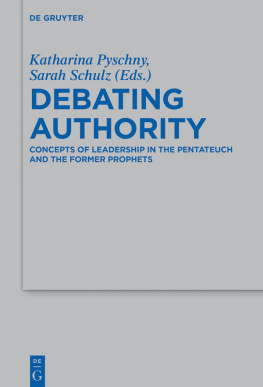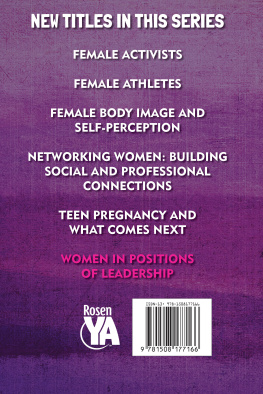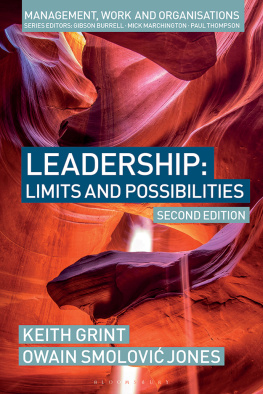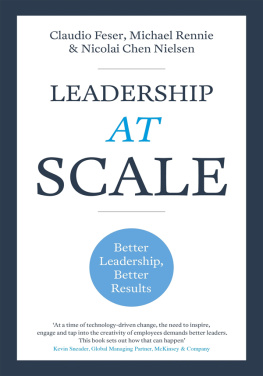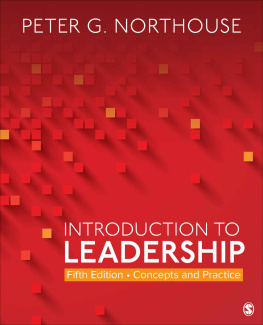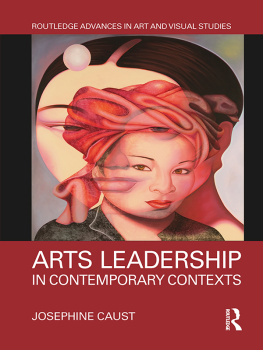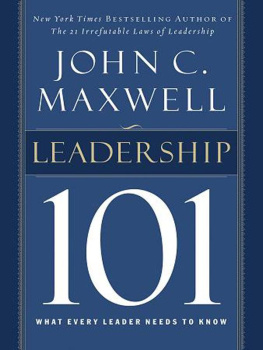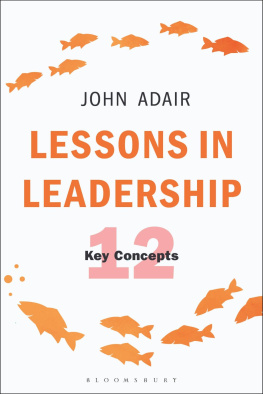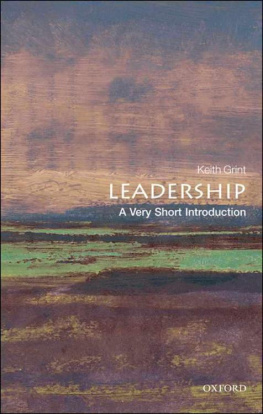Table of Contents
Guide

Debating Authority
Beihefte zur Zeitschrift fr die alttestamentliche Wissenschaft

Herausgegeben von
John Barton, Reinhard G. Kratz, Nathan MacDonald, Carol A. Newsom und Markus Witte
Volume 507
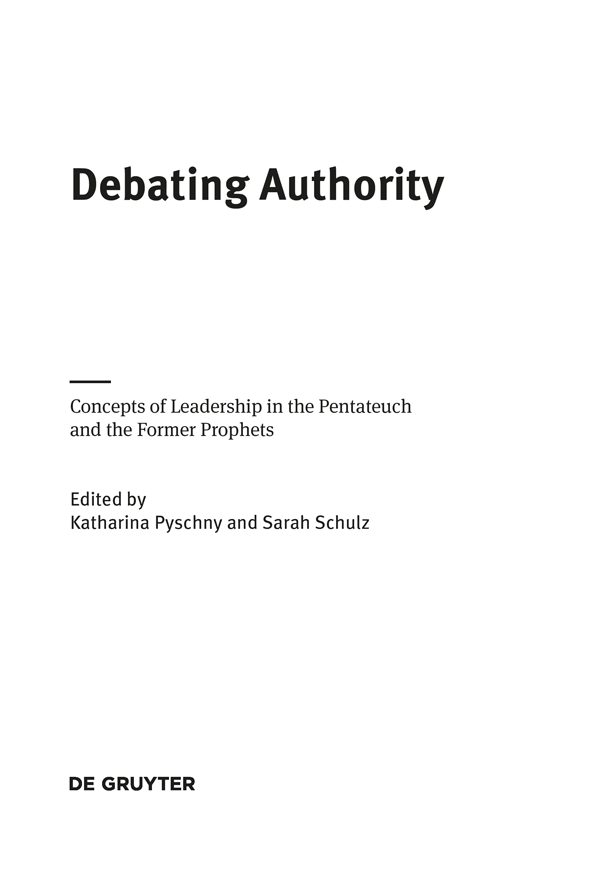
ISBN 978-3-11-054070-3
e-ISBN (PDF) 978-3-11-054339-1
e-ISBN (EPUB) 978-3-11-054275-2
ISSN 0934-2575
Bibliografische Information der Deutschen Nationalbibliothek
The Deutsche Nationalbibliothek lists this publication in the Deutsche Nationalbibliografie; detailed bibliografic data are available on the Internet at http://dnb.dnb.de.
2018 Walter de Gruyter GmbH, Berlin/Boston
www.degruyter.com
Preface
There can be no doubt that the theme of leadership played an important role in ancient Israel and the discourses represented in the Hebrew Bible. Even though aspects of leadership are omnipresent within biblical scholarship, an all-encompassing systematic monograph or volume that deals with the diversity and complexity of leadership concepts in the Hebrew Bible or selected canonical parts is still lacking. The present volume cannot live up to this high standard either, but hopefully it presents a first step into the right direction.
The volume originated in two sessions of our EABS Research Unit Concepts of Leadership in the Hebrew Bible conducted at the EABS Annual Conference 2016 in Leuven, Belgium. The papers, the intense and thought-provoking discussions, and the questions evolving from the sessions encouraged us to plan a comprehensive volume on Leadership in the Pentateuch and the Former Prophets and to invite several additional contributions.
Editing this volume was admittedly a long, albeit fascinating journey. It would not have been possible without the collaboration of several persons and the support of various institutions. Firstly, our thanks go to the European Association of Biblical Studies (EABS) for accepting our proposed research unit and providing us with an international platform for our research. Secondly, we would like to thank the participants of the sessions and all contributors to the present volume who engaged with great interest in the questions and discussions related to the volume. Furthermore, we owe sincere thanks to Dr. Florian Tatschner and Natascha Rhl from the University of Erlangen who put much effort into the copy editing and proofreading of this book. The Facult de thologie et de sciences des religions of the University of Lausanne and the Frau Dorothea und Dr. Dr. Richard Zantner-Busch-Stiftung of the University of Erlangen generously provided financial support to this publication. Finally, we are deeply grateful to the editors of Beihefte zur Zeitschrift fr die Alttestamentliche Wissenschaft , in particular Prof. Dr. Reinhard G. Kratz, for accepting this volume into their series as well as to Eva Frantz, Katrin Mittmann, and Sabina Dabrowski from de Gruyter for their indispensable help and support in preparing the manuscript.
To all these persons and institutions, we would like to express our most sincere thanks for making the completion of this journey possible. We hope that the volume will provide a forum for the current debate on leadership in the Hebrew Bible and become an initial point for further research.
| Lausanne/Erlangen, March 2018 | Katharina Pyschny & Sarah Schulz |
Katharina Pyschny, Sarah Schulz
Debating Authority Concepts of Leadership in the Pentateuch and the Former Prophets: An Introduction
Evidently, the Hebrew Bible offers a great variety of different and sometimes even contradictory concepts of leadership throughout its entire literary scope. Various aspects of leadership (e.g., offices and functionaries like judges, prophets, priests, Levites, elders, princes, kings, etc.) are not only present on a superficial level (e.g., solely on a lexematic or semantic level), but are profoundly embedded into the deep structure of the biblical texts. Leadership can be considered a cross-cutting issue within the Hebrew Bible. Particularly in the Pentateuch and the Former Prophets, leadership is one, though not the only, guiding principle according to which the texts can be analyzed. The present volume deals with the topic leadership in an Enneateuchal perspective. This is a pragmatic and reasonable decision at the same time, since an isolated treatment of leadership concepts within one corpus or the other would be rather artificial: At the end of the Pentateuch, the text itself raises the question of succession by highlighting Moses unique authority on the one hand (Deut 34:1012) and stressing the need for ongoing leadership on the other (v. 9). Thus, it is not surprising at all that the Former Prophets, in particular the books of Joshua and Judges, pick up on Pentateuchal concepts of leadership and in parts can be read as their commentary. Thus, the literary borders within the Enneateuch are not only blurry in diachronic respect, but also when it comes to the conceptualization of leadership.
In the Pentateuch and in the Former Prophets, leadership is addressed in various aspects related to power, authority, legitimacy, etc. and is often presented in the form of problem or conflict constellations (cf. e.g., the murmuring-stories in the Pentateuch). While Max Webers typology of leadership (legal, traditional, and charismatic, cf. Weber 1922) excludes illegitimate leadership per definitionem and considers the acceptance of a leaders authority and legitimacy as a basic definitional criterion, it is exactly these aspects of leadership which are questioned or debated in the biblical texts. This holds true not only regarding individual leadership figures (e.g., Moses, Aaron, Saul), but also in respect to types or forms of leadership (e.g., kingship). The fact that (almost) every concept of leadership is criticized in the Hebrew Bible at some point hints mainly at two significant characteristics in regard to the conceptualization of leadership: the complexity of this issue within the complicated interplay of guidance, power, authority, legitimacy, etc. on the one hand, and the discursivity of leadership claims on the other:
In the pages of the Hebrew Bible, leadership is largely presented as a multilevel problem and not as an unproblematic reward. Few narratives of leadership in either world literature or history emphasize, as the Hebrew Bible does, the mutual, and even simultaneous, refusal of leadership by both leader and people. Few texts, certainly not of this vintage, examine the internal complexities of leadership and power-sharing (Morgenstern 2017, 50).
Thus, the biblical texts offer a rich source of discourses or debates on leadership which clearly mirrors a struggle about criteria and characteristics of effective and legitimate leadership. As a general rule, the legitimacy of leadership claims is (either explicitly or implicitly) linked to YHWH as basis of legitimation. The textual legitimation strategies, though, differ significantly in literary and theological respect (e.g., Moses is legitimized by his role as prophetic mediator and intercessor; the legitimacy of Aaronide leadership is grounded in a specific concentric concept of graded holiness) and without a doubt also bear diachronic implications. Therefore, the analysis of authority, leadership, legitimation, etc. within the complex interplay of literary, literary-historical, theological, and historical perspectives remains one of the biggest challenges of recent biblical scholarship.

